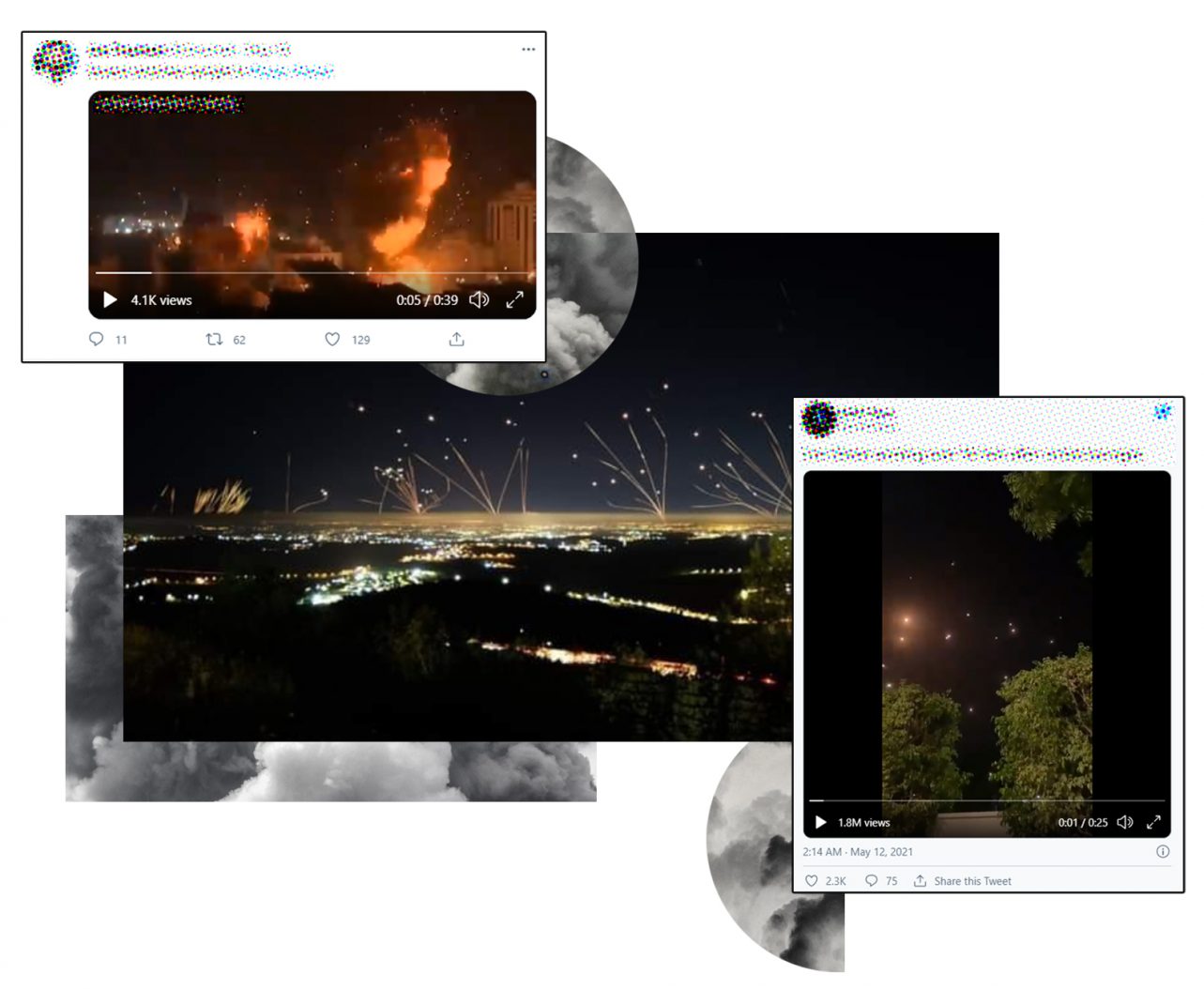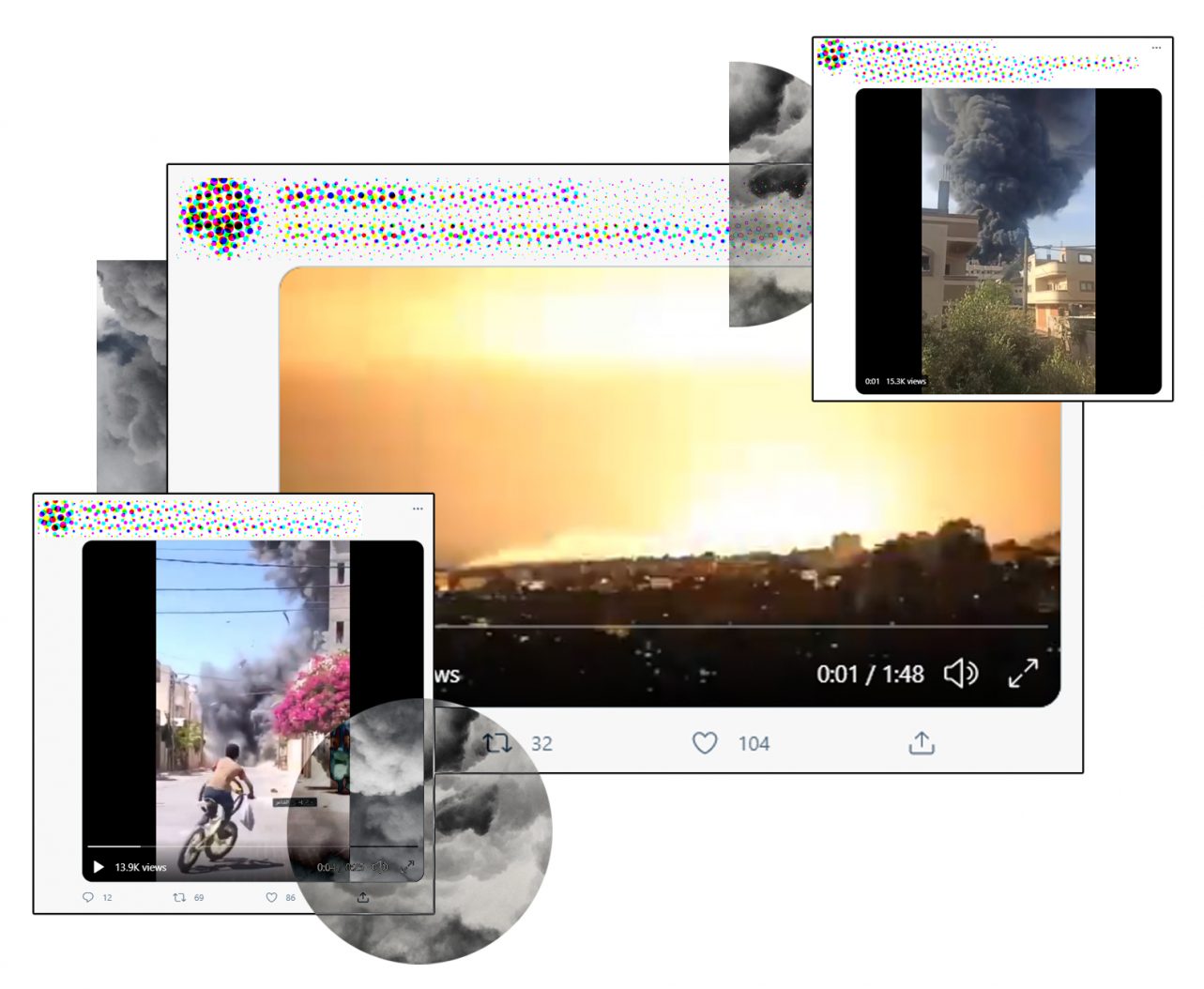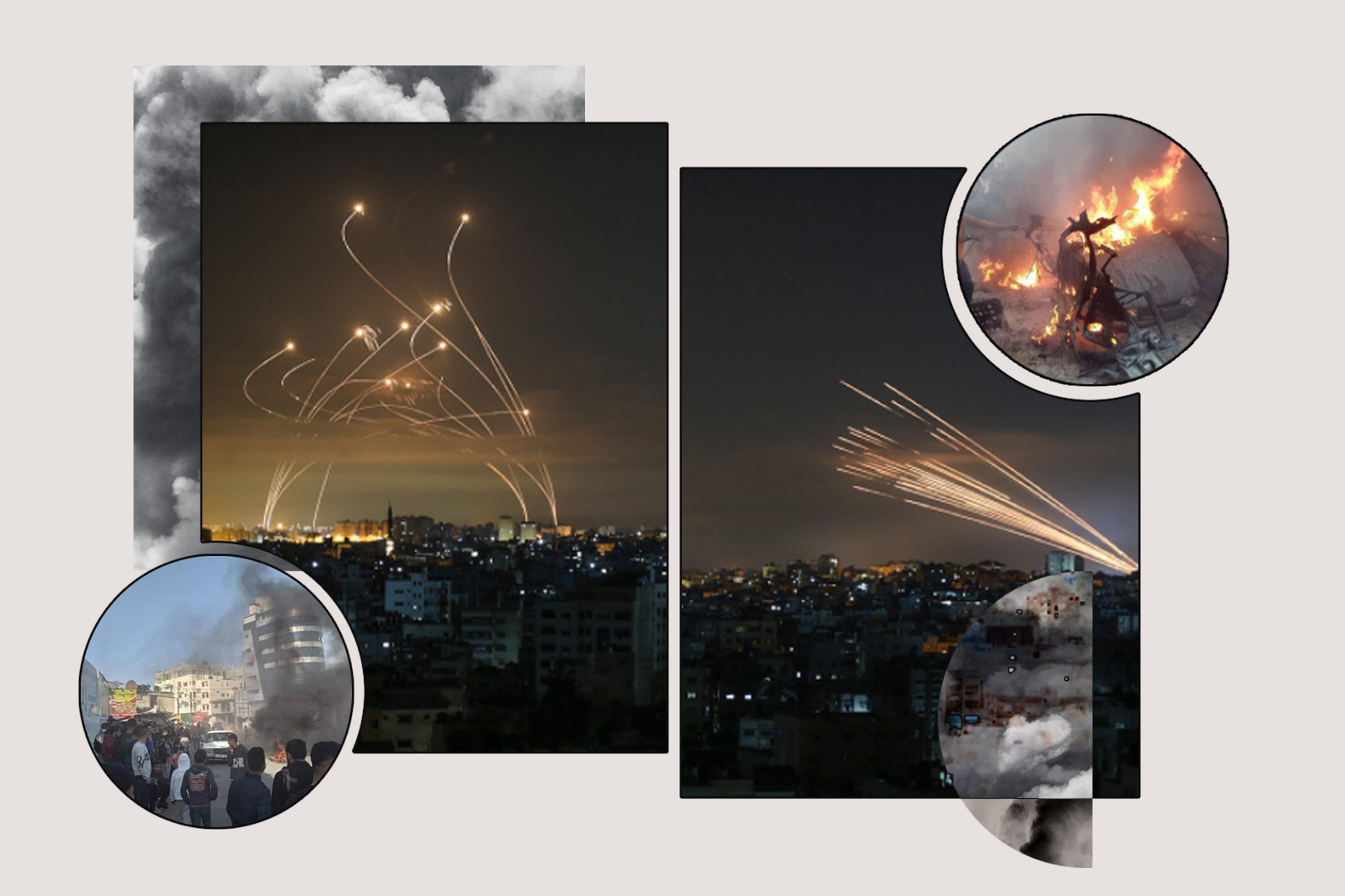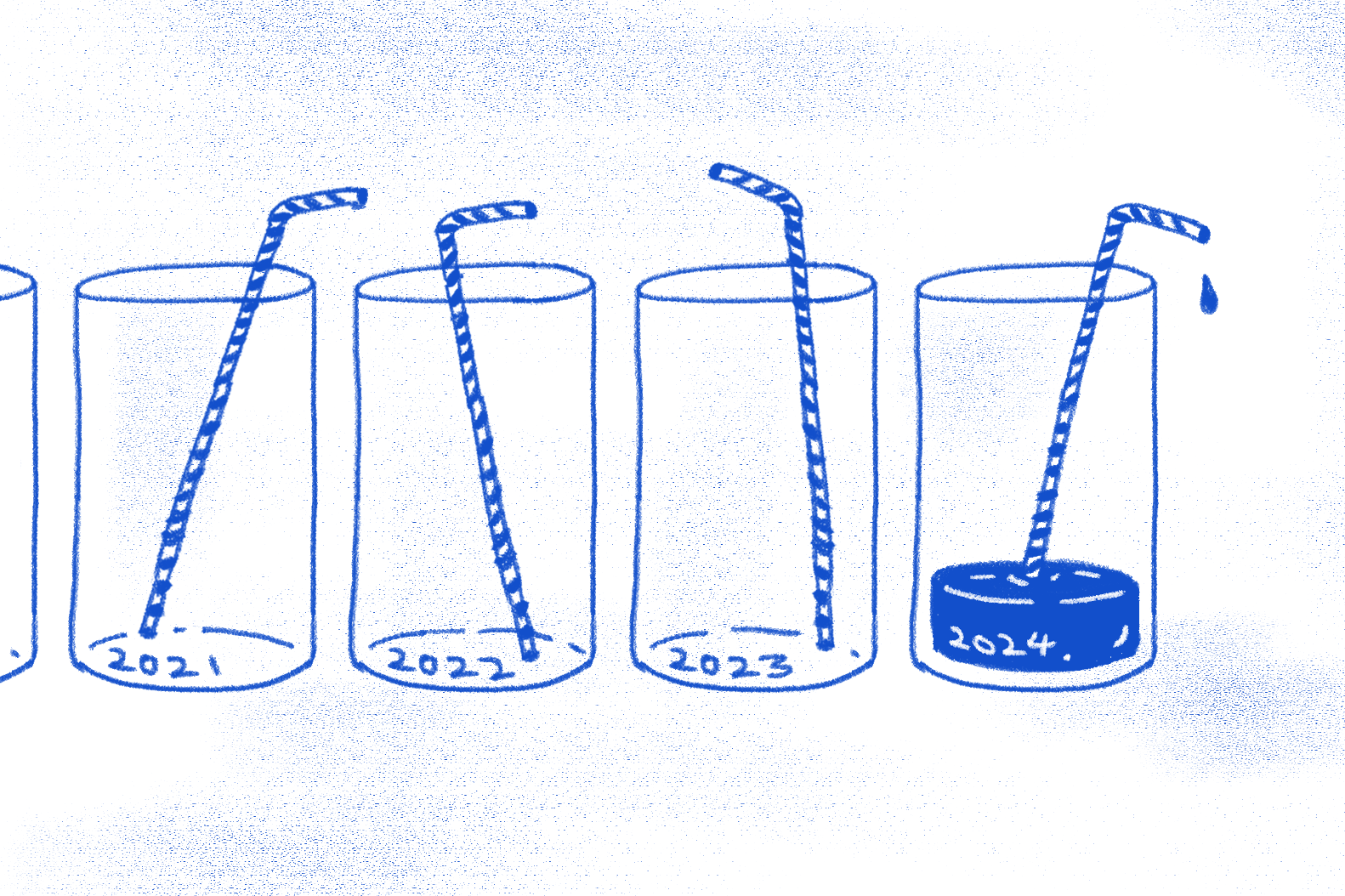Two weeks into the fighting, with over 200 dead… I don’t even know where to begin when it comes to the conflict that’s happening between Israel and Palestine.
The fighting in the last two weeks has been the most intense since 2014 Gaza War, with over 3,300 rockets launched at Israel from Gaza, who received more than a thousand aerial attacks in retaliation (read “How did this round of violence start?” at the bottom of this article for more background).
Beyond the deaths and violence – I meant that somewhat literally — when did it really begin? It wasn’t simply Hamas’ rocket launches last Monday or the retaliatory airstrikes from Israel that followed.
Was it Israel’s independence in 1948? Further back to the Balfour Declaration, perhaps? Or was it God’s promise to Abraham in Genesis 12?
Regardless of whoever believes they have the first word in the matter, the bottom line always seems to be death and destruction.

To tell you the truth, I’ve spent days reading up for this article and I still don’t know what to say. I was on Reddit late last night reading accounts from both Israelis and Palestinians (yes, I’m aware some accounts may be shills).
And as I scrolled, I saw horrible things like children being pulled out from debris caused by Israeli airstrikes, and video footage of a car driven by a Palestinian man slamming full speed into Israeli policemen.
I know there are reasons behind why some of these awful things happen. I know there are truths and lies to them as well. But none of them bring me any comfort as I watch people suffer and die needlessly.
The more I learn about the geopolitical issues of the West Bank, the more I realise that I simply don’t know enough to write about it meaningfully.
So, I won’t pretend to offer a thought piece as if I were someone on tenure in the Political Science department at Tel Aviv University.
In this article, all I can do is to simply share my own journey and reflections on how one might try and begin to understand what’s going on with empathy and objectivity.
SURE GOT BIAS ONE
This is just my opinion, but if you’re a Christian Singaporean, there’s a chance you’re more inclined to support Israel.
After all, the Israelites seem like the good guys in the Bible because they are God’s chosen people.
As a Christian, I grew up to the stories of these underdogs’ triumphs – they were absolute nobodies who overcame impossible odds by God’s hand.
And, boy, do people love a good David versus Goliath story!
It’s a feel-good narrative that has been quite literally replayed for the world to see in stunning victories such as the 1948 Arab-Israeli war, the Six-Day War in 1967 and the Yom Kippur War in 1973.

Because of that, there’s an almost mythical sheen to the nation of Israel that can make it difficult to see the uncomfortable realities beyond the gleam.
Like the effects of Israeli annexation and eviction. The discrimination of Palestinians. It helps to simply also acknowledge the ugly things – and not just what we want – when we discover them in the course of our research. That’s just being honest.
And do the same thing for Palestine. Don’t assume either Israel or Palestine are the good guys and just call it a day.
Lastly, if we’re supporting Israel because it seems like the Christian thing to do, remember there are Palestinian Christians too.
CAN ADD MORE SOURCE?
One of the first things in history lessons I learnt was the value of multiple perspectives – being able to understand different sides of the story.
Reading from a variety of sources gives us a better view of the bigger picture and a better sense of what’s actually going on.
Bonus points if you have friends there on the ground, whether in Jerusalem or Ramallah, who can actually provide you with a view of what is happening.
Having more sources and perspectives helps us to recognise the machinations in play that put people or parties — on either side – in power or decline.
That means trying to understand what Netanyahu (Israeli prime minister) wants; what Hamas (Palestinian militant group) wants; what the other political parties want; what the international community wants; what the average Israeli citizen wants; what everyday Palestinians want and so on.
Pray for discernment as you sift through what’s reliable, and empathy even as you go through what might make for painful reading.
The Lord will guide you into understanding the issues at hand.
UNDERSTAND THE TIMES
Whether or not you believe what happens in Israel is relevant to the end times, it’s still good to know what is happening among God’s chosen people (and indeed what He is doing there!).
In any case, as Christians, let us respond to the Israel-Palestine conflict not with hateful opinions and prideful debates that put down one another.
Let our time and energy involved in this issue be productive. And let’s look at what’s happening in Israel fairly and with empathy for all who suffer.
Then, being well informed of what’s happening on the ground, we can do something more powerful than rockets and airstrikes – interceding in prayer over Israel and Palestine to a sovereign God.
How did this round of violence start?
- In early May, tensions rose ahead of a court ruling that was to decide if several Palestinian families who have been living in the Sheikh Jarrah neighbourhood in Jerusalem since the 1950s should be evicted, returning the land to its Jewish owners.
- Protests erupted around the neighbourhood and other parts of the city as violence grew.
- Then on May 7, Israeli police and Palestinian worshippers clash at the Al-Aqsa Mosque in Jerusalem, which left scores injured.
- Militant group Hamas then issued an ultimatum to Israel to withdraw from the Al-Aqsa Mosque and Sheikh Jarrah by May 10.
- When the deadline passed, Hamas began firing rockets at Jerusalem for the first time since 2014. Israel launched airstrikes in return.
- Since the conflict started, the death toll has risen to over 200 Palestinians and 12 in Israel.
- Amid talks of a cease-fire, the violence has also spread into Lebanon, who have begun firing rockets into Israel.
- How much do you know about the Israel-Palestine conflict?
- What biases might you have? Who can you reach out to for additional perspectives?
- How can you pray for the situation there? Check out our list of prayer points from those who are on the ground.









